Hannah Arendt (1906-1975) was a Jewish German-American theorist and journalist. She was forced into emigration by the National Socialists. This experience influenced her intellectual work.
Quote Category: Human rights and Philosophy
Human rights and (global) philosophy
Human rights are often seen as a legacy of European Enlightenment. German idealist philosophers such as Kant are considered as founders of human rights. However, this Eurocentric view of human rights is also criticized. On the one hand, the ideas of universal equality and freedom can be found in all parts of the world and at all times. On the other hand, human rights are still used today as a justification to devalue so-called “others”, “non-Western” actors as supposedly not yet cultivated or civilized, thereby expressing a supposed European superiority.
In the timeline “Human rights and (global) philosophy”, we explore the following questions:
Where and at what times do we find the ideas of universal freedom and equality that underlie human rights?
• What criticism of human rights can we find in history (of philosophy)?
• What role do colonialism and National Socialism play in the significance of human rights in the past and present?
• What is the relationship between the discourse on human rights and the (criticism of) colonial land grabbing and enslavement?
• What is concealed when we understand human rights exclusively as a product of the European Enlightenment instead of looking at the global dimension?
• To what extent is the disenfranchisement of Jews and other victims of Nazi persecution fundamental to the implementation of human rights after 1945?
• To what extent do human rights (not) help those affected by disenfranchisement to claim their basic rights?
• How are human rights linked to economic power structures, classism, racism and gender relations?
By placing human rights and their philosophical legitimization in a global context, their contradictory meaning and function become visible.
This timeline was developed in a cooperation between the DFG-founded research project „How to deal with racism, sexism and antisemitism in works of classical German philosophy?“ (Friedrich-Schiller-University, Jena) and glokal e.V.

Unfortunately wrong answer
Try again!
The answer was
Read the solution on the "line with the dots" (there where you can re-read all the quotes)
OK
“We became aware of the existence of a right to have rights […] only when millions of people emerged who had lost and could not regain these rights […].”
Correct!
“We became aware of the existence of a right to have rights […] only when millions of people emerged who had lost and could not regain these rights […].”
Year:
Author Bio:
Source:
Quote: Hannah Arendt (1958): The Origins of Totalitarianism. Cleveland and New York: Meridian Books, p. 296-297.
Picture: By Barbara Niggl Radloff – sammlungonline.muenchner-stadtmuseum.de, CC BY-SA 4.0, Wikimedia, Creative Commons.
Context:
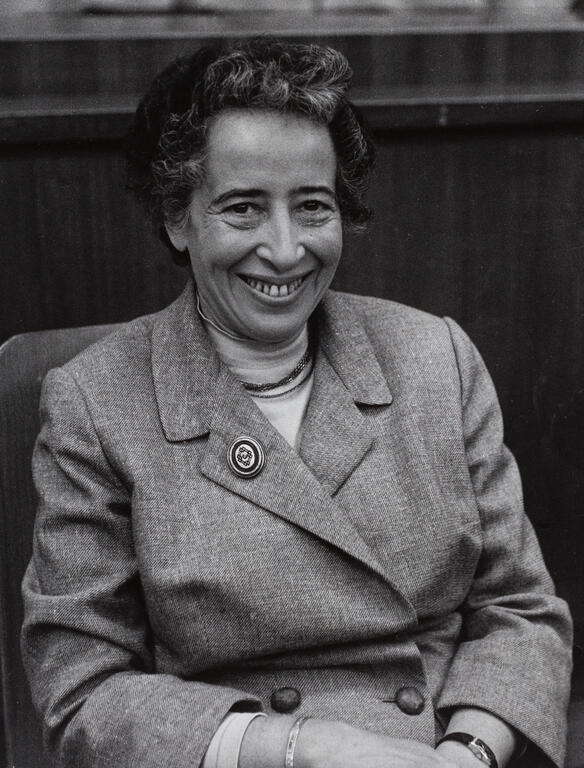 The quote comes from Arendt’s essay ‘The Rights of Man: What Are They?’ (fall of 1949), reprinted in her book “The Origins of Totalitarianism”. With reference to so-called Displaced Persons (DPs), stateless people, who cannot invoke their citizenship and associated rights, Arendt points out that human rights cannot protect the disenfranchised, namely those who most urgently need the protection of human rights. Human rights must therefore be rethought based on those who are denied even human rights. Arendt’s considerations relate above all to the disenfranchised and stateless as a result of National Socialist persecution and her own experience as such.
The quote comes from Arendt’s essay ‘The Rights of Man: What Are They?’ (fall of 1949), reprinted in her book “The Origins of Totalitarianism”. With reference to so-called Displaced Persons (DPs), stateless people, who cannot invoke their citizenship and associated rights, Arendt points out that human rights cannot protect the disenfranchised, namely those who most urgently need the protection of human rights. Human rights must therefore be rethought based on those who are denied even human rights. Arendt’s considerations relate above all to the disenfranchised and stateless as a result of National Socialist persecution and her own experience as such.
Further Reading:
*Leila Faghfouri Azar (06/12/2019): Hannah Arendt: The Right to Have Rights.
*Michael Rothberg (2009): At the Limits of Eurocentrism. Hannah Arendt’s “The Origins of Totalitarianism”, in Michael Rothberg: Multidirectional Memory. Remembering the Holocaust in the Age of Decolonization. Redwood City: Stanford University Press, pp. 33-65.
OK
“Humanity is in its greatest perfection in the white race. The yellow Indians already have a lesser talent. The N* are much lower, and lowest of all is parrt of the American peoples.”
Correct!
“Humanity is in its greatest perfection in the white race. The yellow Indians already have a lesser talent. The N* are much lower, and lowest of all is parrt of the American peoples.”
Year:
Author Bio:
Immanuel Kant (1724-1804) was a philosopher of European Enlightenment who lived in Königsberg, now Kaliningrad. His philosophy is still considered groundbreaking today and he is celebrated as the father of human rights.
Source:
Quote translated after: Immanuel Kant (1802): Vorlesungen über Physische Geographie, AA 9: 316.
Picture: Johann Gottlieb Becker (1720-1782), Wikimedia, Creative Commons.
Context:
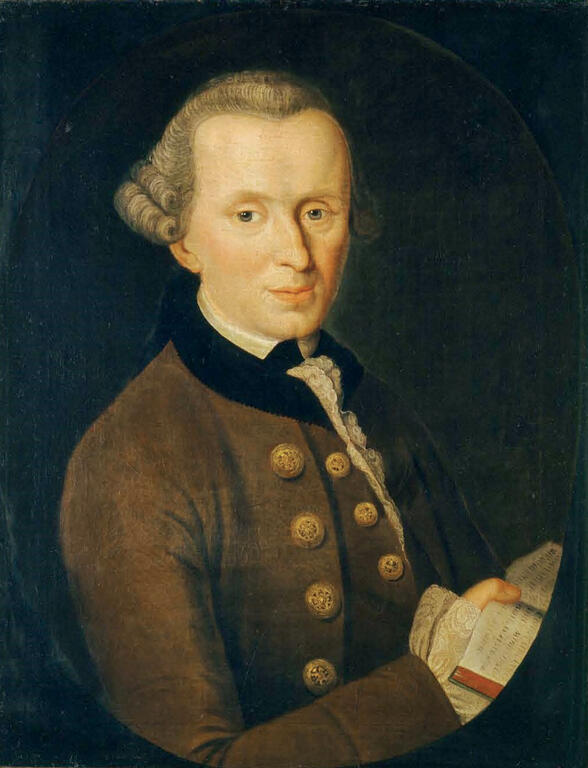 The quote comes from a lecture on Physical Geography that Kant gave regularly from 1755 until the end of his teaching career in 1796. It is available mainly in form of transcripts by Kant’s students, which is why it is not possible to determine with certainty what Kant said exactly . Kant drew most of his knowledge from travel reports, in this case from Georges-Louis Leclerc de Buffon.
The quote comes from a lecture on Physical Geography that Kant gave regularly from 1755 until the end of his teaching career in 1796. It is available mainly in form of transcripts by Kant’s students, which is why it is not possible to determine with certainty what Kant said exactly . Kant drew most of his knowledge from travel reports, in this case from Georges-Louis Leclerc de Buffon.
The quote contradicts Kant’s ethics and moral philosophy, which presupposes the equali-ty of all people and is also considered fundamental to the Declaration of Human Rights. This contradiction has been the subject of lively public and academic debates for a num-ber of years. Because of such quotes, Kant is considered by some to be the founder of modern race theory.
Further Reading:
*Huaping Lu-Adler (2023): Kant, Race, and Racism: Views from Somewhere. Oxford: Oxford University Press.
*Emmanuel Chukwudi Eze (ed. 1997): Race and the Enlightenment. A Reader. New Jersey: Wiley & Sons Ltd.
*Robert Bernasconi (Jan/Feb 2003): Will the real Kant please stand up. The challenge of Enlightenment racism to the study of the history of philosophy, in: Radical Philosophy 117.
OK
“The idea of human rights, in other words, may carry within itself the agenda of a kind of social Darwinism […].”
Correct!
“The idea of human rights, in other words, may carry within itself the agenda of a kind of social Darwinism […].”
Year:
Author Bio:
Gayatri Chakravorty Spivak (*1942) is an Indian-American literary scholar and a central thinker of postcolonial theories.
Source:
Quote: Gayatri Chakravorty Spivak (2004): „Righting Wrongs“, in: The South Atlantic Quarterly, Vol. 103 (2/3), pp. 523-581, p. 524.
Picture: Robert Crc – Subversive festival media, FAL, Wikimedia, Creative Commons.
Context:
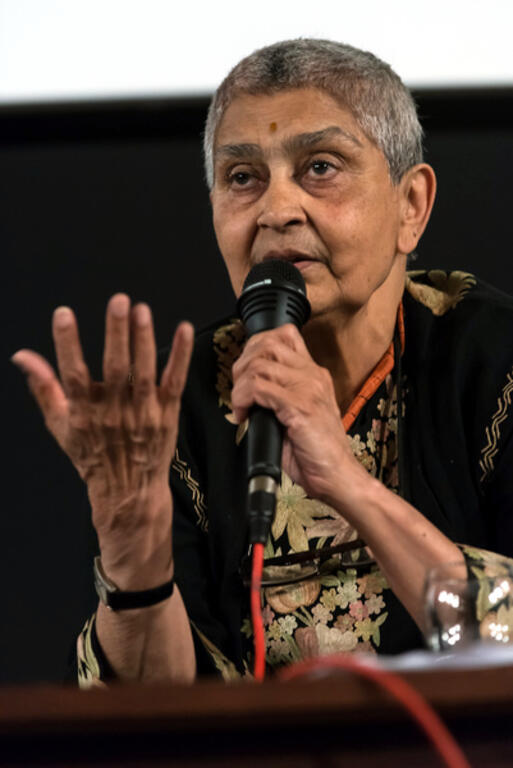 In this quote, Spivak criticizes the idea of civilization and progress inherent in the concept of human rights. She shows that human rights imply a logic of the strongest: human rights suggest that white Europeans, thanks to their supposed civilization, were able to bring forth human rights that black people were denied for a long time and that these “others” now have to be taught. With her critique, Spivak shows that this image persists to this day, although it has long been shown that the supposed European civilization implied colonization, exploitation, enslavement and oppression of Black people, the consequences of which continue to this day.
In this quote, Spivak criticizes the idea of civilization and progress inherent in the concept of human rights. She shows that human rights imply a logic of the strongest: human rights suggest that white Europeans, thanks to their supposed civilization, were able to bring forth human rights that black people were denied for a long time and that these “others” now have to be taught. With her critique, Spivak shows that this image persists to this day, although it has long been shown that the supposed European civilization implied colonization, exploitation, enslavement and oppression of Black people, the consequences of which continue to this day.
Further Reading:
*Sarah de Jong (2022): Writing rights: suturing Spivak’s postcolonial and de Sousa San-tos’ decolonial thought. Postcolonial Studies, 25(1), p. 89–107.
*Gayatri Chakravorty Spivak (2004): Righting Wrongs. The South Atlantic Quarterly, Volume 103, Number 2/3, pp. 523-581, p. 524.
OK
“The natural laws and rules of men are common to all peoples, Christian and pagan, without distinction and no matter what their sect, law, status, color or origin may be.”
Correct!
“The natural laws and rules of men are common to all peoples, Christian and pagan, without distinction and no matter what their sect, law, status, color or origin may be.”
Year:
Author Bio:
Bartholomé de Las Casas (1484-1566) was a Spanish Dominican monk and the first bishop of Chiapa (today: Mexico). He came as a soldier who took part in colonization. Later he changed his opinion and criticized the violence against the indigenous population.
Source:
Quote translated after: Bartolomé de Las Casas (1996): Brief an Prinz Philipp vom 20.4.1544″, in: Delgasdo Mariano (Hrsg.): Sozialethische und staatsrechtliche Schriften, Vol. 3 (1), Paderborn: Schöningh Verlag, pp. 33-59, p. 51.
Picture: Unknown painter; Informations source : National Geographic & Álvaro Huerga, Bartolomé de Las Casas: Vie et œuvres.
Context:
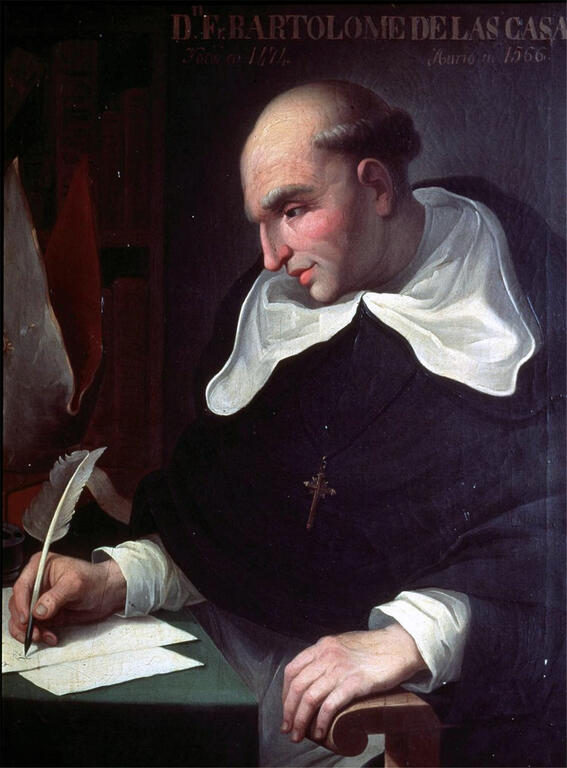 Long before the individual rights of freedom in 18th century Europe, Las Casas turned against Spain’s policies of colonialization by calling for equal rights for all people. He pointed out the illegality of the alleged treaties with indigenous populations, which were intended to legitimize colonial land seizure and rule of the Spanish conquerors. Las Casas attempted to defend equality and freedom of the subjugated peoples as human beings and their right to political self-determination. His writings and his advocacy of the indigenous population exposed Las Casas to the accusation, e.g. insult of the Spanish nation, disortion of history or being mentally ill. Because of his writings and advocacy of the indigenous people, Las Casas was accused of insulting the Spanish nation, falsifying history and being mentally ill.
Long before the individual rights of freedom in 18th century Europe, Las Casas turned against Spain’s policies of colonialization by calling for equal rights for all people. He pointed out the illegality of the alleged treaties with indigenous populations, which were intended to legitimize colonial land seizure and rule of the Spanish conquerors. Las Casas attempted to defend equality and freedom of the subjugated peoples as human beings and their right to political self-determination. His writings and his advocacy of the indigenous population exposed Las Casas to the accusation, e.g. insult of the Spanish nation, disortion of history or being mentally ill. Because of his writings and advocacy of the indigenous people, Las Casas was accused of insulting the Spanish nation, falsifying history and being mentally ill.
Further Reading:
*Lawrence A. Clayton (2012): Bartolomé de las Casas: A Biography. Cambridge: Cambridge University Press.
*Resources on Bartolomé de Las Casas.
OK
“Self-defence is an inalienable human right, and the tactics of confronting the regime will change to ensure that persons defend their right to life and limb.”
Correct!
“Self-defence is an inalienable human right, and the tactics of confronting the regime will change to ensure that persons defend their right to life and limb.”
Year:
Author Bio:
Walter Rodney (1942-1980) was a Guyanese Marxist historian and politician who was murdered in a Guyana Army bomb attack.
Source:
Quote: Walter Rodney (1979): People’s Power, no Dictator. Georgetown, Guyana: Working People’s Alliance.
Picture: By Unknown. Wikimedia. Creative Commons.
Context:
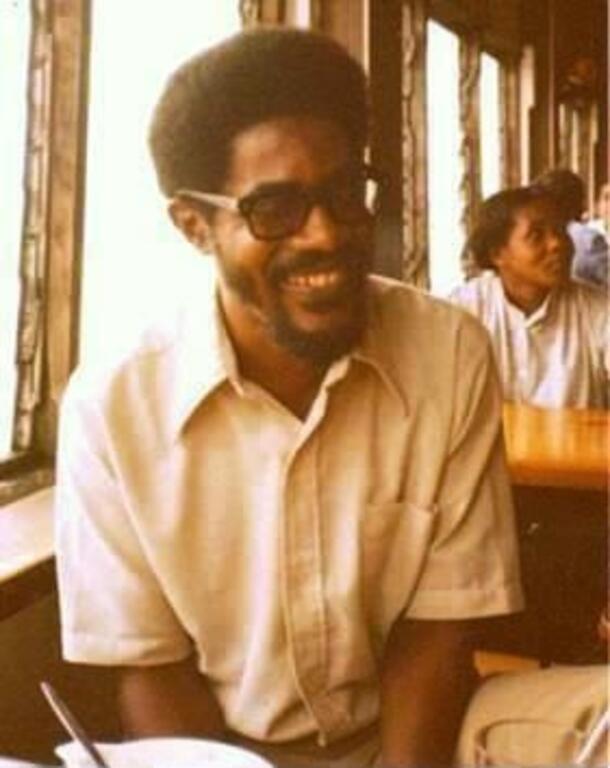 The quote comes from the speech “People’s Power, no Dictator”, which Walter Rodney gave in 1979. Rodney was a pan-African, Marxist historian and political activist. He came from southamerican Guyana and, after studying in Mona (Jamaica) and London (UK), worked as a university lecturer in Tanzania until he became a professor in Georgetown, Guyana in 1974. He was politically active against the increasingly authoritarian government of Forbes Burnham. In various speeches, he developed the ideas of self-emancipation of the working people, people’s power and multi-racial democracy. In the quote, Rodney opposes the increasingly dictatorial government of Forbes Burnham and emphasizes self-defence as a universal human right.
The quote comes from the speech “People’s Power, no Dictator”, which Walter Rodney gave in 1979. Rodney was a pan-African, Marxist historian and political activist. He came from southamerican Guyana and, after studying in Mona (Jamaica) and London (UK), worked as a university lecturer in Tanzania until he became a professor in Georgetown, Guyana in 1974. He was politically active against the increasingly authoritarian government of Forbes Burnham. In various speeches, he developed the ideas of self-emancipation of the working people, people’s power and multi-racial democracy. In the quote, Rodney opposes the increasingly dictatorial government of Forbes Burnham and emphasizes self-defence as a universal human right.
Further Reading:
*Massimiliano Tomba (2019): Insurgent Universality. An Alternative Legacy of Modernity. New York: Oxford University Press.
OK
“A man counts as a man in virtue of his manhood alone, not because he is a Jew, Catholic, Protestant, German, Italian, etc.”
Correct!
“A man counts as a man in virtue of his manhood alone, not because he is a Jew, Catholic, Protestant, German, Italian, etc.”
Year:
Author Bio:
Georg Wilhelm Friedrich Hegel (1770-1831) was a philosopher of German Idealism.
Source:
Quote: Georg Friedrich Wilhelm Hegel (1896): Philosophy of Right, translated and first Published: S W Dyde, G Bell: London 1896.
Picture: Lazarus Gottlieb Sichling/ Nach Friedrich Julius Ludwig Sebbers – Wikimedia, Creative Commons.
Context:
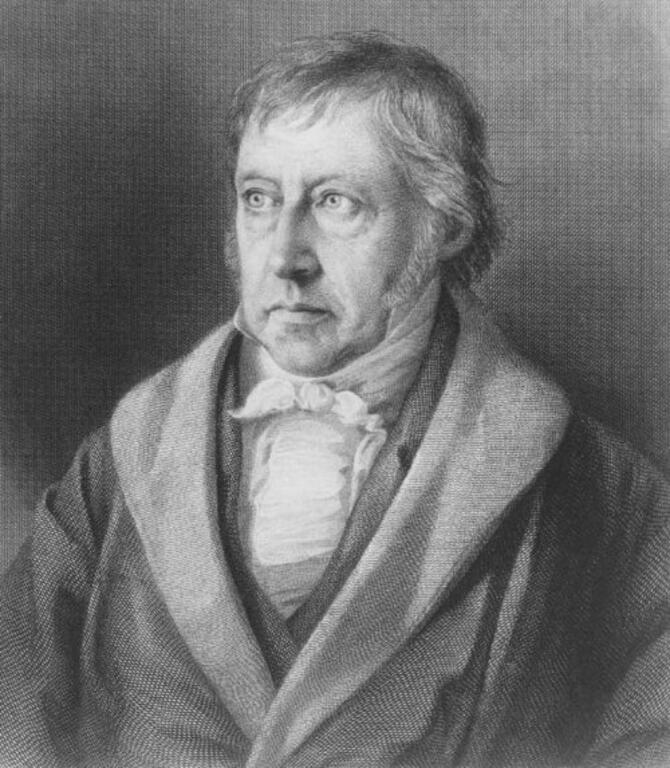 In particular in his lectures, Hegel repeatedly makes racist arguments. He describes the inhabitants of the socalled sub-Saharan Africa as “a child nation”, who could “so easily be made into slaves” due to their lack of consciousness of personality. In the quote here, Hegel emphasizes that in modern bourgeois society all people are equal, regardless of religion or nationality. The condition for this, however, is that this legal equality must first be achieved historically. This idea harbors the possibility of devaluing other forms of life that do not correspond to the European, modern, bourgeois order as underdeveloped.
In particular in his lectures, Hegel repeatedly makes racist arguments. He describes the inhabitants of the socalled sub-Saharan Africa as “a child nation”, who could “so easily be made into slaves” due to their lack of consciousness of personality. In the quote here, Hegel emphasizes that in modern bourgeois society all people are equal, regardless of religion or nationality. The condition for this, however, is that this legal equality must first be achieved historically. This idea harbors the possibility of devaluing other forms of life that do not correspond to the European, modern, bourgeois order as underdeveloped.
Further Reading:
*Jamila Mascat (2022): Race, Feminism and Critical Race Theories: What’s Hegel Got to Do with It?, in: Lettow, S., Pulkkinen, T. (eds.): The Palgrave Handbook of German Idealism and Feminist Philosophy. Palgrave Handbooks in German Idealism. Londing: Palgrave Macmillan, p. 329-349.
*Michael Hardimon (2024): Where Did Hegel Go Wrong on Race? Hegel Bulletin 45(1), p. 23-42.
OK
“[H]ow to belong fully in this world that is common to all of us […] [?] But exclusion, discrimination, and selection on the basis of race continue to be structuring factors of inequality, the absence of rights, and contemporary domination […].”
Correct!
“[H]ow to belong fully in this world that is common to all of us […] [?] But exclusion, discrimination, and selection on the basis of race continue to be structuring factors of inequality, the absence of rights, and contemporary domination […].”
Year:
Author Bio:
Achille Mbembe (*1957) is a post-colonial theorist, philosopher and historian. He is a professor at the Witwatersrand University in Johannesburg.
Source:
Quote: Achille Mbembe (2017): Critique of Black Reason. Durham and London: Duke University Press, pp. 176-177.
Picture: Wikimedia. Creative Commons.
Context:
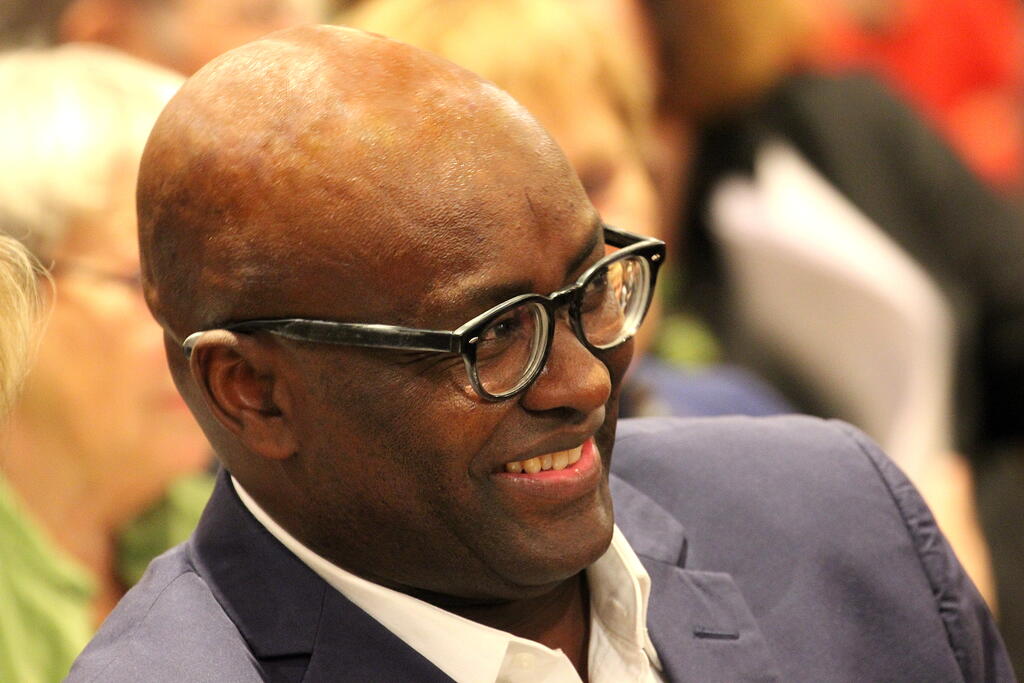 Mbembe develops a critical reflection on the Western notion of reason and rationality. He examines current dynamics of colonialism, racism and resistance and attempts to explore possibilities for a more just and solidary world order. He attempts to show the extent to which the goal of anti-colonial liberation struggles, the right to equal participation for all, remains relevant for the present day.
Mbembe develops a critical reflection on the Western notion of reason and rationality. He examines current dynamics of colonialism, racism and resistance and attempts to explore possibilities for a more just and solidary world order. He attempts to show the extent to which the goal of anti-colonial liberation struggles, the right to equal participation for all, remains relevant for the present day.
Further Reading:
*Achille Mbembe (2017): Critique of Black Reason. Durham and London: Duke University Press.
*Achille Mbembe (July 1, 2021): Notes on Late Eurocentrism. Translated by Carolyn Shread. Critical Inquiry.
OK
“[W]e take possession of the countries of all peoples in all three other parts of the world without hesitation; […] if they […] resist, we exterminate them completely; […] we do all this without anyone in Europe being aware that we are thereby committing terrible injustices.”
Correct!
“[W]e take possession of the countries of all peoples in all three other parts of the world without hesitation; […] if they […] resist, we exterminate them completely; […] we do all this without anyone in Europe being aware that we are thereby committing terrible injustices.”
Year:
Author Bio:
Johann Heinrich Gottlob Justi (1717-1771) was an economist, cameralist and lawyer.
Source:
Quote translated after: Johann Heinrich Gottlob Justi (1762): Vergleichungen der europäischen mit den asiatischen und andern vermeintlich barbarischen Regierungen, Berlin.
Picture: praebook – The World biographical encyclopedia.
Context:
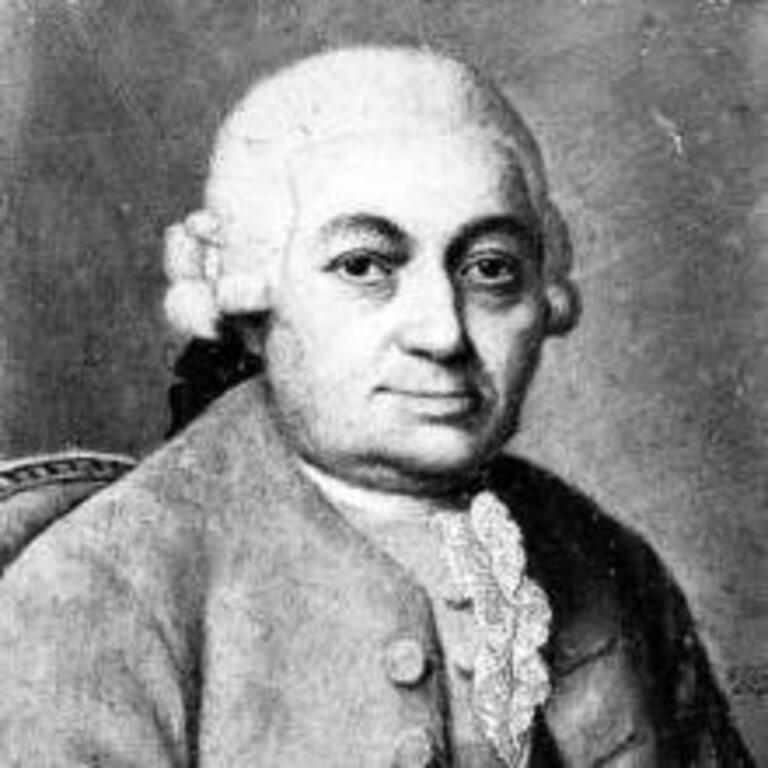 Justi dealt with issues of law, economics, politics and philosophy in numerous writings. The quote comes from a text in which he compares European governments with other – supposedly barbaric – governments. In contrast to many of his contemporaries, Justi particularly criticizes the European self-image of being better developed than other peoples of the world. That this is not the case, that Europeans themselves are crude, can be seen in the actions of the European peoples. The aim of his book is to change the self-image of the European peoples. Justi thus takes a progressive position for his time.
Justi dealt with issues of law, economics, politics and philosophy in numerous writings. The quote comes from a text in which he compares European governments with other – supposedly barbaric – governments. In contrast to many of his contemporaries, Justi particularly criticizes the European self-image of being better developed than other peoples of the world. That this is not the case, that Europeans themselves are crude, can be seen in the actions of the European peoples. The aim of his book is to change the self-image of the European peoples. Justi thus takes a progressive position for his time.
Further Reading:
*Ulrich Adam (2006): The Political Economy of J.H.G. Justi. Oxford: Peter Lang.
*Erik S. Reinert (2009): Johann Heinrich Gottlob von Justi – The Life and Times of an Economist Adventurer, in: Jürgen Georg Backhaus (ed.), The Beginnings of Political Economy. Wiesbaden: Springer, p. 33-74.
OK
“No Human Being is Illegal.”
Correct!
“No Human Being is Illegal.”
Year:
Author Bio:
Elie Wiesel (1928-2016) was a Jewish American-Romanian publicist, author, university lecturer and Shoah survivor. He wrote books on the Shoah and was a campaigner against racism and misanthropy until the end of his life.
Source:
Quote: Flyer “National Campaign for the Civil and Human Rights of Salvadorans”, 1988.
Picture: photo©ErlingMandelmann.ch, CC BY-SA 3.0, Wikimedia. Creative Commons.
Context:
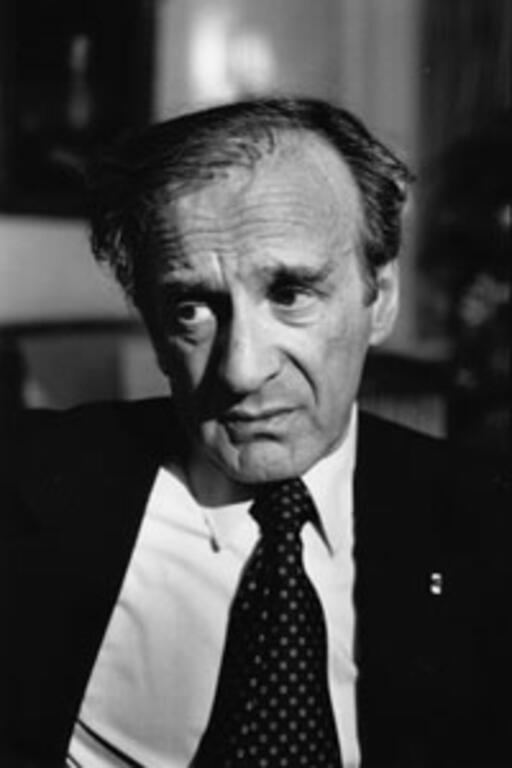 “No human being is illegal” is a political slogan that is directed against deportation policies, restriction of asylum laws and racism in the US. Today it is used in the context of deportation policies, borders and asylum law debates also in Germany. It criticises deportation policies that make people illegal and deny them basic human rights. Elie Wiesel, who is said to have introduced the slogan as part of a civil and human rights campaign for Salvadorans in the USA, is regarded as the originator. Since 1997, there exists an international academic network called “No human is illegal” that supports illegalized people.
“No human being is illegal” is a political slogan that is directed against deportation policies, restriction of asylum laws and racism in the US. Today it is used in the context of deportation policies, borders and asylum law debates also in Germany. It criticises deportation policies that make people illegal and deny them basic human rights. Elie Wiesel, who is said to have introduced the slogan as part of a civil and human rights campaign for Salvadorans in the USA, is regarded as the originator. Since 1997, there exists an international academic network called “No human is illegal” that supports illegalized people.
Further Reading:
*Isabel Johnston (May 20, 2019): Words Matter: No Human Being is Illegal. Immigration and Human Rights Law Review Blog.
*Berger, A. L. (2021). Elie Wiesel: Humanist Messenger for Peace. United Kingdom: Taylor & Francis.
OK
“Yes, it would be worthwhile to […] reveal to the very […] humanistic […] bourgeois of the twentieth century that […] he has a Hitler inside him […] and […] that its concept of those rights [= rights of man] has been […] sordidly racist.”
Correct!
“Yes, it would be worthwhile to […] reveal to the very […] humanistic […] bourgeois of the twentieth century that […] he has a Hitler inside him […] and […] that its concept of those rights [= rights of man] has been […] sordidly racist.”
Year:
Author Bio:
Aimé Césaire (1913-2008) was an Afro-Caribbean-French politician and author. He was a co-founder of Négritude and part of the anti-colonial movement.
Source:
Quote: Aimé Cesairé (1972): Discourse on Colonialism. New York and London: Monthly Review Press, p. 3.
Picture: Jean Baptiste Devaux, CC BY-SA 4.0, Wikimedia. Creative Commons.
Context:
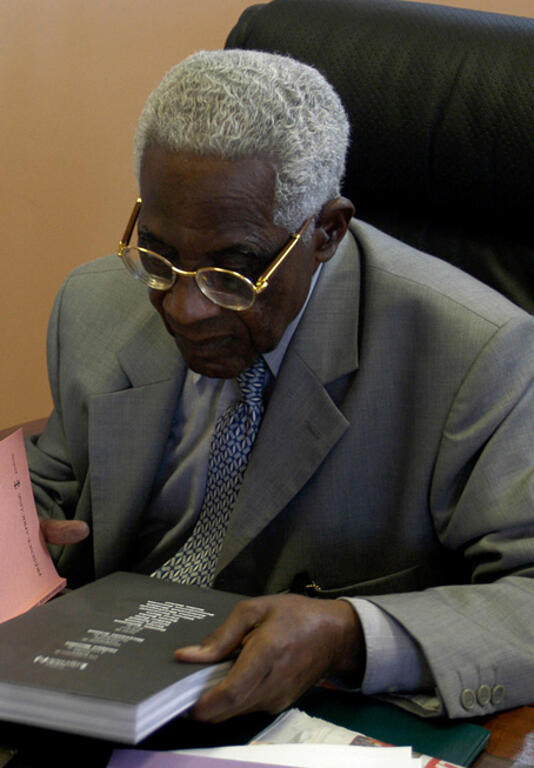 The quote comes from Césaire’s published speech “On Colonialism”. He criticizes the self-image of enlightened Europe. He shows that human rights do not apply to everyone in a colonized world. Many people only became aware of human rights violations by Europeans through National Socialism, when they took place within Europe. Césaire’s criticism of colonialism is important, but he fails to recognize the specific nature of racialized anti-Semitism when he turns Jews into white Europeans. To this day, Césaire is an important reference in discussions about the relationship between colonialism and the Shoah. Some see Césaire’s ideas as a way of understanding the relationship between colonialism and the Shoah. Others see him as a pioneer in relativizing the Shoah.
The quote comes from Césaire’s published speech “On Colonialism”. He criticizes the self-image of enlightened Europe. He shows that human rights do not apply to everyone in a colonized world. Many people only became aware of human rights violations by Europeans through National Socialism, when they took place within Europe. Césaire’s criticism of colonialism is important, but he fails to recognize the specific nature of racialized anti-Semitism when he turns Jews into white Europeans. To this day, Césaire is an important reference in discussions about the relationship between colonialism and the Shoah. Some see Césaire’s ideas as a way of understanding the relationship between colonialism and the Shoah. Others see him as a pioneer in relativizing the Shoah.
Further Reading:
*Amy M Cools (26.06.2019): Happy Birthday, Aimé Césaire!
*Philip Kaisary (2012): Human Rights and Radical Universalism: Aimé Césaire’s and CLR James’s Representations of the Haitian Revolution. Law and Humanities, 6 (2), p. 197–216.
OK
“Surely this traffic cannot be good, […] which violates that first natural right of man-kind, equality and independency, and gives one man a dominion over his fellows which God could never intend!”
Correct!
“Surely this traffic cannot be good, […] which violates that first natural right of man-kind, equality and independency, and gives one man a dominion over his fellows which God could never intend!”
Year:
Author Bio:
Olaudah Equiano (1745-1797) was a Nigerian-born author of the African diaspora who was enslaved as a child. Due to his education, he was later allowed to trade. He was able to buy his freedom in 1766 and campaigned for the abolition of slavery in England from 1777.
Source:
Quote: Orig.: The interesting Narrative of the Life of Oulaudah Equiano or Gustavus Vassa the Africa, written by himself (1789).
Picture: Unknown author – Project Gutenberg eText 15399. Wikimedia. Creative Commons.
Context:
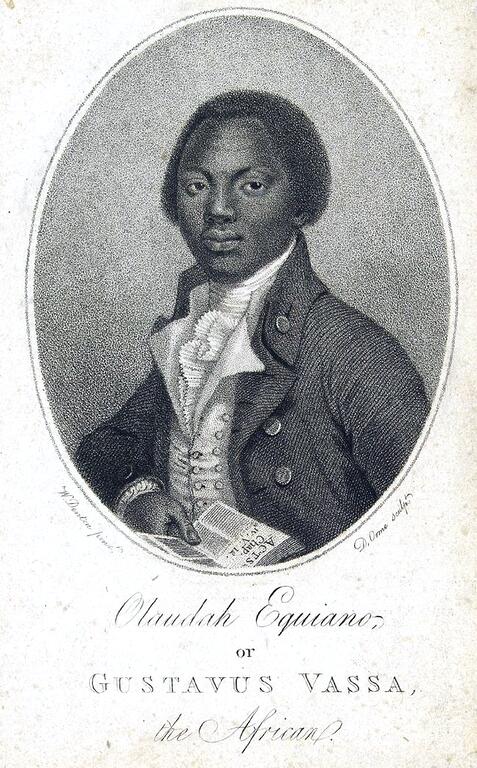 The quote comes from Equiano’s memories of warlike conflicts that took place in his childhood between neighboring states in order to capture booty and prisoners to sell to European slave traders. In the case described, the attackers were defeated and killed or enslaved. In his description Equiano emphasizes the contrast to the inhumanity of European slavery. In his autobiography, Equiano does not initially oppose all forms of slavery. He obtained the means to buy his freedom by participating in human trafficking. His initially ambivalent attitude towards slavery changed over the course of his life and ultimately led to a decisive stance against slavery.
The quote comes from Equiano’s memories of warlike conflicts that took place in his childhood between neighboring states in order to capture booty and prisoners to sell to European slave traders. In the case described, the attackers were defeated and killed or enslaved. In his description Equiano emphasizes the contrast to the inhumanity of European slavery. In his autobiography, Equiano does not initially oppose all forms of slavery. He obtained the means to buy his freedom by participating in human trafficking. His initially ambivalent attitude towards slavery changed over the course of his life and ultimately led to a decisive stance against slavery.
Further Reading:
*Olaudah Equiano (2021): The Interesting Narrative of the Life of Olaudah Equiano, or Gustavus Vassa, the African. Hoboken New Jersey.
*Resources on Equiano.
OK
“No other distinctions exist than those of virtues and talents, nor any other superiority than that granted by the law in the exercise of a public charge. The law is the same for all, whether it punishes or protects.”
Correct!
“No other distinctions exist than those of virtues and talents, nor any other superiority than that granted by the law in the exercise of a public charge. The law is the same for all, whether it punishes or protects.”
Year:
Author Bio:
Independent Republic of Haiti of 1804
Source:
Quote: Art. 5, Haitian constitution 1801.
Picture: Bdx – CC BY-SA 4.0, Wikimedia. Creative Commons.
Context:
 The quote comes from the constitution of St. Dominique (now Haiti) from 1801. In August 1791, black slaves revolted against the French colonial power and freed themselves. After the French National Assembly granted equal rights to all inhabitants of the colonies in 1792, military clashes broke out against white royalists. One protagonist of developing the constitution of 1801 was Toussaint L’Ouverture. He installed himself as governor for life and at the same time brought forth universalist convictions of equality. The constitution led to a political rupture. Napoleon sent military forces. L’Ouvertures‘ army was forced to surrender after three months. St. Dominique became independent in 1804 and was renamed Haiti.
The quote comes from the constitution of St. Dominique (now Haiti) from 1801. In August 1791, black slaves revolted against the French colonial power and freed themselves. After the French National Assembly granted equal rights to all inhabitants of the colonies in 1792, military clashes broke out against white royalists. One protagonist of developing the constitution of 1801 was Toussaint L’Ouverture. He installed himself as governor for life and at the same time brought forth universalist convictions of equality. The constitution led to a political rupture. Napoleon sent military forces. L’Ouvertures‘ army was forced to surrender after three months. St. Dominique became independent in 1804 and was renamed Haiti.
Further Reading:
*Massimiliano Tomba (2019): Insurgent Universality. An Alternative Legacy of Modernity. New York: Oxford University Press.
OK
“[…] one who saves a single soul in the world is as if he has saved the whole world.”
Correct!
“[…] one who saves a single soul in the world is as if he has saved the whole world.”
Year:
Author Bio:
from the Babylonian Talmud
Source:
Quote: Babylonian Talmud, Sanhedrin 37a.
Picture: The Babylonian Talmud published by Daniel Bomberg 1519-1523.; Daniel Bomberg, Public domain, via Wikimedia Commons.
Context:
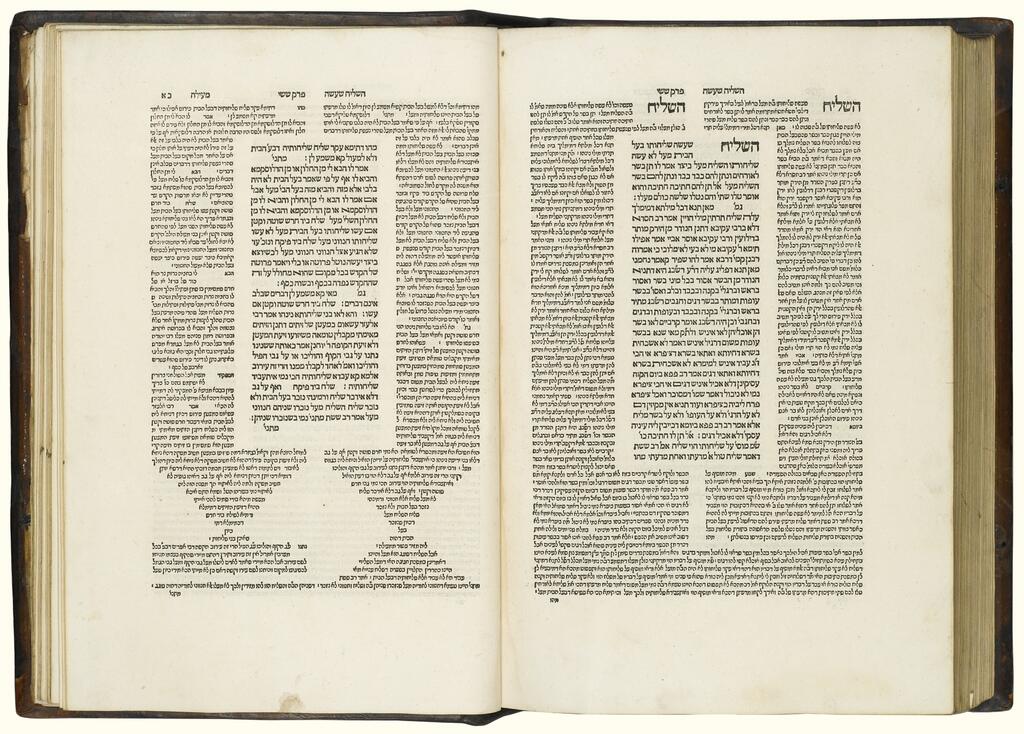 The quote comes from the Babylonian Talmud, which does not contain the Jewish religious laws themselves, but rabbinical interpretations of their application in practice. The quote expresses a strict reciprocity between people. It is a meta-halakhic – a universalist – principle that emphasizes the simultaneous universality and particularity of each and every human being. In this respect, it‘s claim comes close to the idea of human rights.
The quote comes from the Babylonian Talmud, which does not contain the Jewish religious laws themselves, but rabbinical interpretations of their application in practice. The quote expresses a strict reciprocity between people. It is a meta-halakhic – a universalist – principle that emphasizes the simultaneous universality and particularity of each and every human being. In this respect, it‘s claim comes close to the idea of human rights.
The quote from the Talmud has a central meaning for religious scholars such as Maimonides. The international memorial Yad Vashem honors the “Righteous Among the Nations” (those who saved Jews during the Shoah) with a medal engraved with this sentence from the Talmud.
Further Reading:
*Malka Simkovich (2016): The Making of Jewish Universalism: From Exile to Alexandria. United Kingdom: Lexington Books.
*Programme Yad Vashem medal of the Righteous: An Entire Universe.
OK
“[N]either did intelligence save anybody, for if equality among men is proclaimed in the name of intelligence and philosophy, it is also true that these concepts have been used to justify the extermination of man.”
Correct!
“[N]either did intelligence save anybody, for if equality among men is proclaimed in the name of intelligence and philosophy, it is also true that these concepts have been used to justify the extermination of man.”
Year:
Author Bio:
Frantz Fanon (1925-1961) was born in Martinique. He studied medicine and philosophy in Lyon and was one of the most important pioneers of anti- and post-colonial theory.
Source:
Quote: Frantz Fanon (1967): Black Skin, White Masks (1952), translated from the French by Richard Philcox, New York: Pluto Press, p. 25.
Picture: By Wikimedia, Creative Commons
Context:
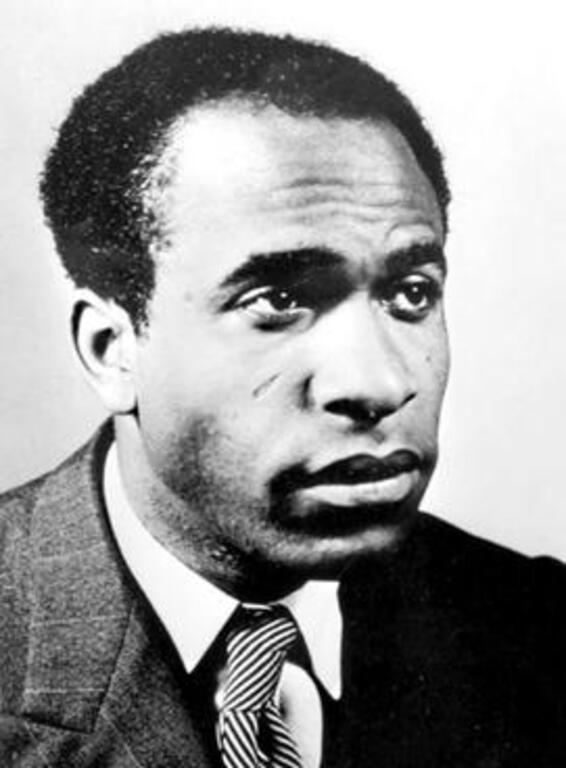 The quote comes from Fanon’s famous 1952 essay “Black Skin, White Masks”, in which he deals with the psychological effects of colonial violence and thus turns away from the Négritude movement. There are several passages in the book that criticize the European Enlightenment. In this quote, he makes it clear that it is not a question of intelligence whether one should be granted equal rights; on the contrary, philosophers legitimized the extermination of the colonized. Despite this criticism of hypocracy of philosophy and its proclamation of equality, Fanon saw the possibility of liberation in universal humanism at this time. He later joined the anti-colonial struggle in Algeria.
The quote comes from Fanon’s famous 1952 essay “Black Skin, White Masks”, in which he deals with the psychological effects of colonial violence and thus turns away from the Négritude movement. There are several passages in the book that criticize the European Enlightenment. In this quote, he makes it clear that it is not a question of intelligence whether one should be granted equal rights; on the contrary, philosophers legitimized the extermination of the colonized. Despite this criticism of hypocracy of philosophy and its proclamation of equality, Fanon saw the possibility of liberation in universal humanism at this time. He later joined the anti-colonial struggle in Algeria.
Further Reading:
*Frantz Fanon (1967): The Wretched of the Earth. Grove Press: New York, especially p. 78.
*Peter Hudis (26.12.2020) The Revolutionary Humanism of Frantz Fanon, Brooklyn: Jacobin.
*John Drabinski (2019): “Frantz Fanon”, in: The Stanford Encyclopedia of Philosophy (Spring 2019 Edition), Edward N. Zalta (ed.).
OK
“[H]uman rights are women’s rights and women’s rights are human rights.”
Correct!
“[H]uman rights are women’s rights and women’s rights are human rights.”
Year:
Author Bio:
Hillary Clinton (*1947) is an American politician and was First Lady during her husband’s presidency from 1992 to 2001.
Source:
Quote: Hillary Clinton (1995): Keynote address during the “Fourth World Conference on Women” Beijing 1995.
Picture: By White House – Official Portrait of First Lady Hillary Clinton, Public Domain, Wikimedia, Creative Commons.
Context:
 This quote comes from Clinton’s speech as “First Lady” of the USA during the “Fourth World Conference on Women” in Beijing, China. It addresses various dimensions of the violation of women’s human rights. She points out that many women who wanted to attend the conference were denied participation. Freedom means that everyone is allowed to contradict their governments without risk to life and limb. While Clinton sees herself as a human rights activist, she is criticized for subordinating demands for human rights to the economic and power-political interests of the USA, thereby undermining their fundamental importance.
This quote comes from Clinton’s speech as “First Lady” of the USA during the “Fourth World Conference on Women” in Beijing, China. It addresses various dimensions of the violation of women’s human rights. She points out that many women who wanted to attend the conference were denied participation. Freedom means that everyone is allowed to contradict their governments without risk to life and limb. While Clinton sees herself as a human rights activist, she is criticized for subordinating demands for human rights to the economic and power-political interests of the USA, thereby undermining their fundamental importance.
The slogan is also better known in the context of feminist movements, which use it to advocate equal rights for women.
Further Reading:
*Kevin Young, Diana C. Sierra Becerra (03.09.2015): Hillary Clinton’s Empowerment, Brooklyn: Jacobin.
*Amnesty International (2024): Women’s rights are human rights!
OK
“None of the so-called rights of man, therefore, go […] beyond man as a member of civil society […].”
Correct!
“None of the so-called rights of man, therefore, go […] beyond man as a member of civil society […].”
Year:
Author Bio:
Karl Marx (1818-1883) was a social theorist, philosopher and economist and is considered an important theorist of the workers’ movement.
Source:
Quote: Karl Marx (1843-1844): On the Jewish Question. Karl Marx, Frederick Engels: Collected Works, Vol. 3, 1843-1844, p. 185.
Picture: By John Jabez Edwin Mayal – International Institute of Social History in Amsterdam, Netherlands, Public Domain, Wikimedia, Creative Commons.
Context:
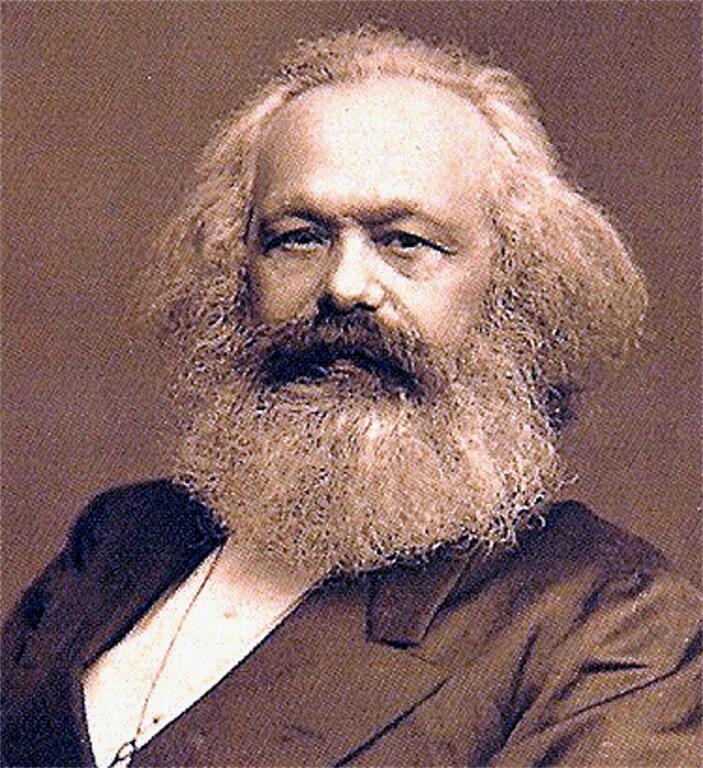 In “On the Jewish Question”, Marx deals with the struggle of Jews for equal rights in modern society. He interprets liberal human rights as defensive rights intended to protect against state encroachment or conflict. In this respect, from Marx’s point of view, they implicitly assume a primarily hostile relationship between people and are an expression of the bourgeois social order characterized by competitive relationships. Human rights thereby cement such a society instead of helping to overcome it. Against liberal human rights that conceale economic exploitation, Marx therefore advocated their abolition. Both the workers’ movement and anti-colonial liberation movements refer to Marx’s critique.
In “On the Jewish Question”, Marx deals with the struggle of Jews for equal rights in modern society. He interprets liberal human rights as defensive rights intended to protect against state encroachment or conflict. In this respect, from Marx’s point of view, they implicitly assume a primarily hostile relationship between people and are an expression of the bourgeois social order characterized by competitive relationships. Human rights thereby cement such a society instead of helping to overcome it. Against liberal human rights that conceale economic exploitation, Marx therefore advocated their abolition. Both the workers’ movement and anti-colonial liberation movements refer to Marx’s critique.
Further Reading:
*Stephen Brown (2003): The problem with Marx on rights. Journal of Human Rights, 2(4), 517–522.
*David McLellan (2006): Karl Marx. A Biography. London: Papermac.
OK
“Until now it has been practice that we have been treated like serfs, which is deplorable, since Christ redeemed all of us with his precious blood, both the shepherd and the nob-leman […]. Accordingly we hereby declare that we are free […].”
Correct!
“Until now it has been practice that we have been treated like serfs, which is deplorable, since Christ redeemed all of us with his precious blood, both the shepherd and the nob-leman […]. Accordingly we hereby declare that we are free […].”
Year:
Author Bio:
Unknown author. The text was adopted after a peasant assembly in Memmingen during the German Peasants’ War (1524-26).
Source:
Quote: Twelve Articles of the Peasants
Picture: Cleveland Museum of Art, Public domain, via Wikimedia Commons,
Context:
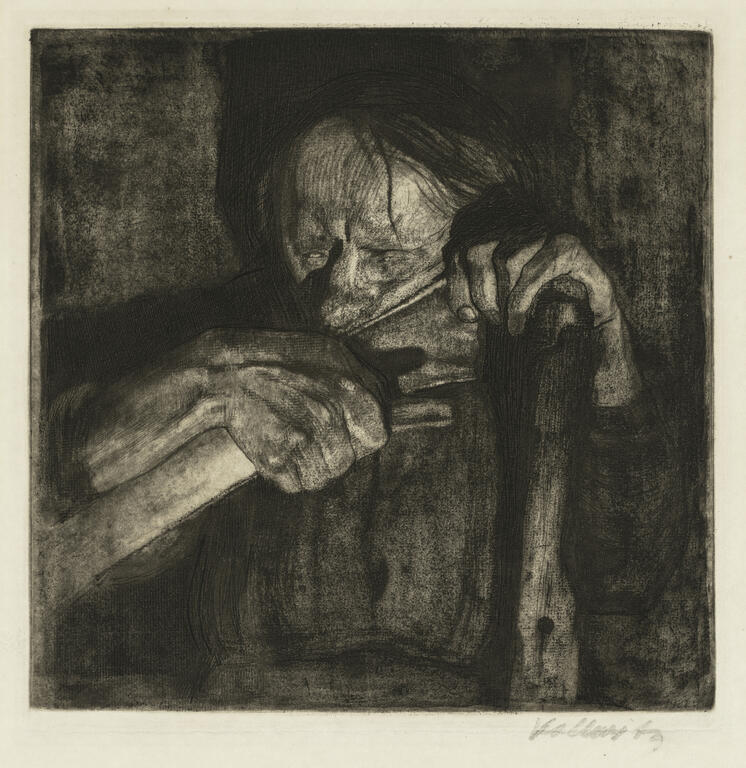 In the aftermath of the Reformation, many peasants saw their belief confirmed that the previous legal order did not represent God’s will and that it was unjust. Drawing from the Bible they argued against the church-sanctioned order. The Twelve Articles of the Peasantry are considered to be an early claim for human rights and freedoms in Europe. In addition to the abolition of serfdom, the claims included the right to hunt and fish, the freedom to elect and depose a pastor, and an independent judiciary. The rebels explicitly referred to Martin Luther (1483-1546), who, however, rejected the uprising and called for the crackdown of the peasant uprisings. The crackdown followed and the Twelve Articles of the Peasantry did not come into force.
In the aftermath of the Reformation, many peasants saw their belief confirmed that the previous legal order did not represent God’s will and that it was unjust. Drawing from the Bible they argued against the church-sanctioned order. The Twelve Articles of the Peasantry are considered to be an early claim for human rights and freedoms in Europe. In addition to the abolition of serfdom, the claims included the right to hunt and fish, the freedom to elect and depose a pastor, and an independent judiciary. The rebels explicitly referred to Martin Luther (1483-1546), who, however, rejected the uprising and called for the crackdown of the peasant uprisings. The crackdown followed and the Twelve Articles of the Peasantry did not come into force.
Further Reading:
*Translation of the entire text here.
*Joshua J. Mark (2022): Twelve Articles. World history encyclopedia.
OK
“It is clear, then, that some men are by nature free, and others slaves, and that for these latter slavery is both expedient and right.”
Correct!
“It is clear, then, that some men are by nature free, and others slaves, and that for these latter slavery is both expedient and right.”
Year:
Author Bio:
Aristotele (384 BCE – 322 BCE), ancient philosopher, student at the Platonic Academy and tutor to Alexander at the court of King Philip, taught from 335/4 at the public gymnasium (Lykeion) in Athens and then founded his own school, later named after Peripathos.
Source:
Quote: Aristotele: Politics. Princeton: Princeton University Press, p. 1991, 1255a1–2.
Picture: Nach Lysipp – Jastrow (2006). Wikimedia. Creative Commons.
Context:
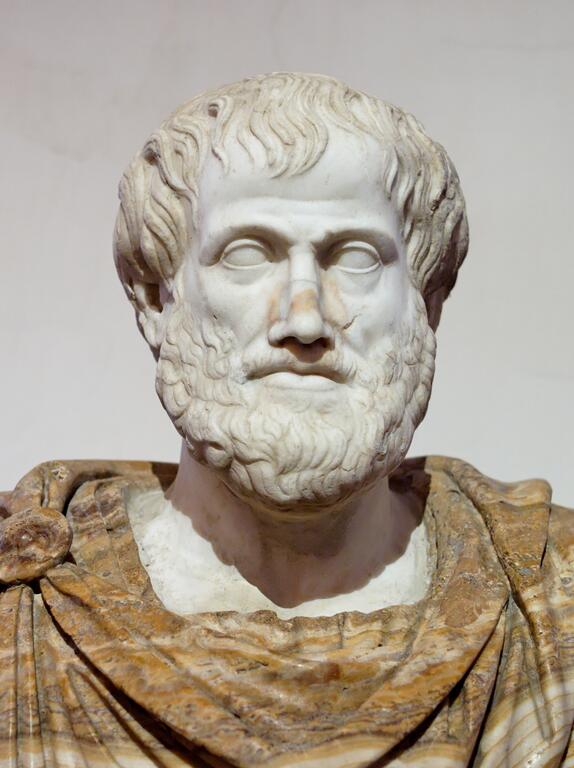 The quote comes from Aristotle’s first book of his “Politics”, in which he attempts to demonstrate the inequality of the distribution of power and the subordination and superiority of people as a natural fact. In response to the objection that prisoners of war could fall into slavery by chance without having previously been slaves, he argues that it is precisely in their defeat in battle that their previously hidden “slave nature” is revealed. Aristotle’s defense of the institution of slavery was a powerful source of justification for the conquerors, slaveholders and settlers of the pre-modern as well as the modern era.
The quote comes from Aristotle’s first book of his “Politics”, in which he attempts to demonstrate the inequality of the distribution of power and the subordination and superiority of people as a natural fact. In response to the objection that prisoners of war could fall into slavery by chance without having previously been slaves, he argues that it is precisely in their defeat in battle that their previously hidden “slave nature” is revealed. Aristotle’s defense of the institution of slavery was a powerful source of justification for the conquerors, slaveholders and settlers of the pre-modern as well as the modern era.
Further Reading:
*New York Times (Agnes Callard, 21.07.2020): Should We Cancel Aristotle?
*Olivia Haynie (27.11.2022): Aristotle and the Argument for American Slavery, Penns.
OK
“All men are equal in terms of basic human dignity and basic obligations and responsibilities, without any discrimination […]. True faith is the guarantee for enhancing such dignity along the path to human perfection.”
Correct!
“All men are equal in terms of basic human dignity and basic obligations and responsibilities, without any discrimination […]. True faith is the guarantee for enhancing such dignity along the path to human perfection.”
Year:
Author Bio:
The Organization of Islamic Cooperation
Source:
Quote: The Cairo Declaration of Human Rights in Islam (CDHRI)
Picture: Decorative logo from p. 2 of Cairo Declaration on Human Rights in Islam. Quelle: Official Document System of the United Nations (ODS).
Context:
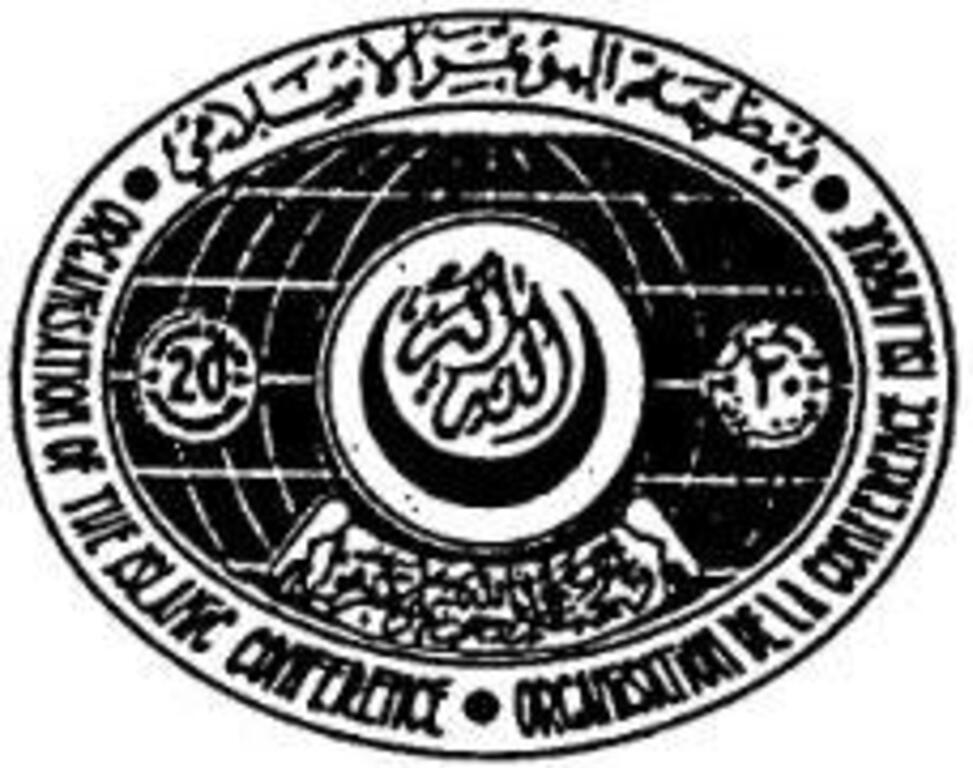 The quote comes from the Cairo Declaration of Human Rights in Islam. It was adopted by the Conference of the Organization of Islamic Cooperation in 1990. It was the result of criticism that the Universal Declaration of Human Rights was “a secular interpretation of the Judeo-Christian tradition” and therefore could not be followed by Muslims without violating their own law, according to the Iranian representative to the United Nations, Said Rajaie-Khorassani, in 1981. The Cairo Declaration is therefore explicitly based on Islamic Sharia law. This creates a tension that is also expressed in the quote. On the one hand, human dignity is guaranteed “without discrimination of any kind” – explicitly including discrimination based on “religious belief” – while on the other, “true faith” is the “guarantee for the enjoyment of such dignity”.
The quote comes from the Cairo Declaration of Human Rights in Islam. It was adopted by the Conference of the Organization of Islamic Cooperation in 1990. It was the result of criticism that the Universal Declaration of Human Rights was “a secular interpretation of the Judeo-Christian tradition” and therefore could not be followed by Muslims without violating their own law, according to the Iranian representative to the United Nations, Said Rajaie-Khorassani, in 1981. The Cairo Declaration is therefore explicitly based on Islamic Sharia law. This creates a tension that is also expressed in the quote. On the one hand, human dignity is guaranteed “without discrimination of any kind” – explicitly including discrimination based on “religious belief” – while on the other, “true faith” is the “guarantee for the enjoyment of such dignity”.
Further Reading:
*Eva Brems (2001): “Islamic Declarations of Human Rights”, in: Human rights: universality and diversity. Vol. 66 of International studies in human rights. Martinus Nijhoff Publishers. pp. 241-284.
*Jonathan Russell (10th Dec 2012): The Universal Declaration vs The Cairo Declaration, LSE.
OK
“It was only now that I realized how difficult it would be for me to find a suitable job because of my African origin, because although I was gifted, no one thought of letting me learn a profession.”
Correct!
“It was only now that I realized how difficult it would be for me to find a suitable job because of my African origin, because although I was gifted, no one thought of letting me learn a profession.”
Year:
Author Bio:
Henriette Alexander (1817-1895), born in Stuttgart, was the daughter of African valets, who herself worked as a teacher in various places.
Source:
Quote translated after: handwritten notes by Henriette Alexander, in: Monatsblatt von Beuggen, Mai 1895, Nr. 4, p. 30-32.
Picture: Findagrave.
Context:
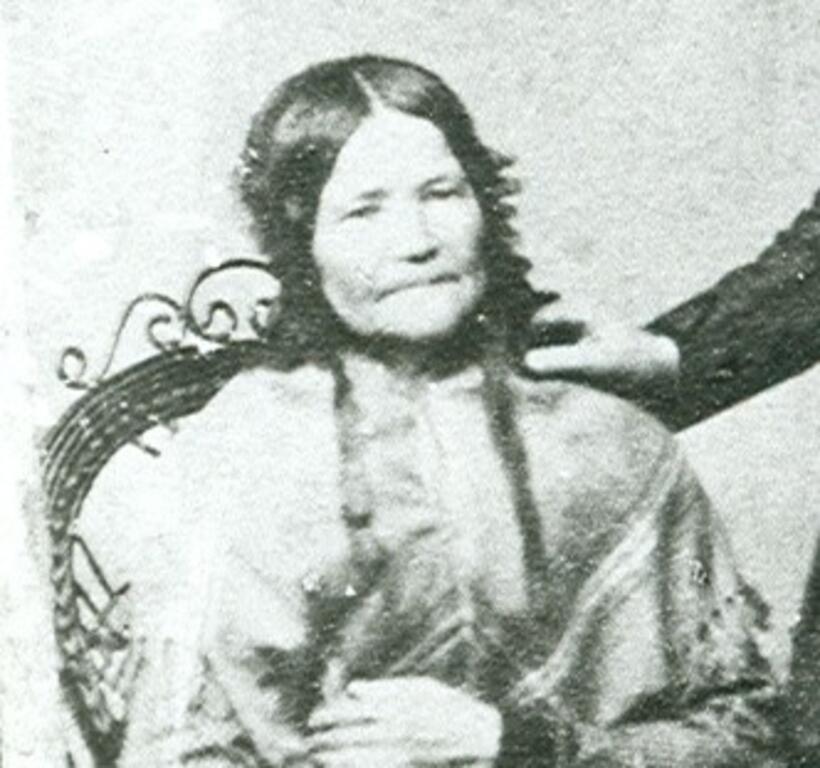 The quote comes from Henriette Alexander’s own notes about her life. As the daughter of so-called African valets, she lived in dependency throughout her life. She was very gifted and as she read a lot, especially the Bible. In her notes, she describes the various stages of her life as a teacher. In the quote, she expresses that despite her talents, she was never able to achieve independence in her home or profession. She was denied equality and freedom because of her African heritage.
The quote comes from Henriette Alexander’s own notes about her life. As the daughter of so-called African valets, she lived in dependency throughout her life. She was very gifted and as she read a lot, especially the Bible. In her notes, she describes the various stages of her life as a teacher. In the quote, she expresses that despite her talents, she was never able to achieve independence in her home or profession. She was denied equality and freedom because of her African heritage.
Further Reading:
*Monika Firla (2001): Exotisch – höfisch – bürgerlich. Afrikaner in Württemberg vom 15. bis 19. Jahrhundert. Katalog zur Ausstellung des Hauptarchivs Stuttgarts: Stuttgart.
*Helen Whittle (13.11.2012): Homestory Deutschland.
OK
“Peoples of the World, we American Negroes appeal to you; our treatment in America is not merely an internal question of the United States. It is a basic problem of humanity; of democracy; of discrimination because of race and color […].”
Correct!
“Peoples of the World, we American Negroes appeal to you; our treatment in America is not merely an internal question of the United States. It is a basic problem of humanity; of democracy; of discrimination because of race and color […].”
Year:
Author Bio:
W.E.B. Du Bois (1868-1963) was an American human rights activist and civil rights activist as well as philosopher, sociologist and historian.
Source:
Quote: Letter to the newly founded United Nations: “An Appeal to the World: A Statement of Denial of Human Rights to Minorities in the Case of Citizens of Negro Descent in the United States of America and an Appeal to the United Nations for Redress.”
Picture: By Unknown author. WIkimedia. Creative Commons.
Context:
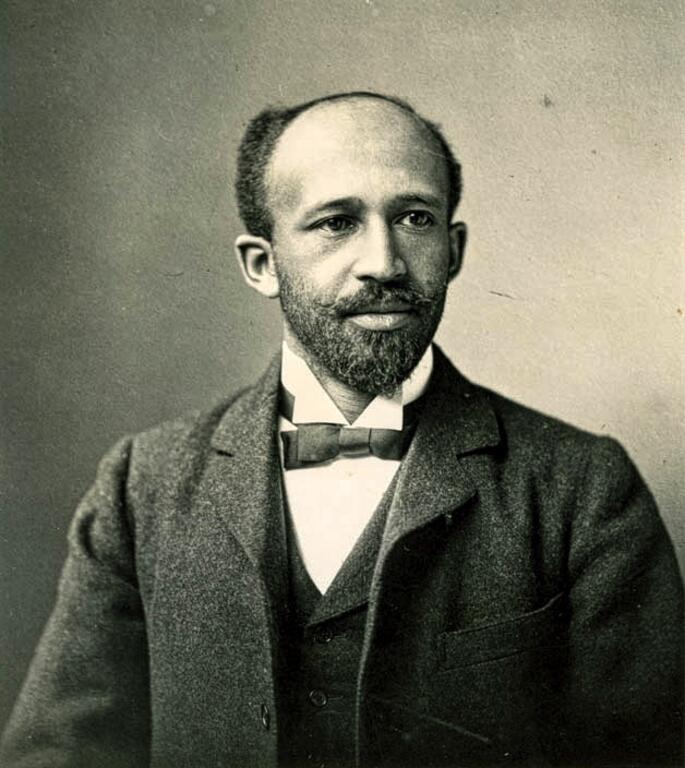 In the letter to the newly founded United Nations and the Universal Declaration of Human Rights implemented with reference to the experiences of National Socialism, Du Bois links the situation of black people in the USA with general questions of human rights. While the USA, as an ally in Europe, was instrumental in the liberation from fascism and injustice, black people in the USA continue to be denied basic rights. Du Bois appeals to the world community not to leave the unjust treatment of black people to the USA as a domestic political problem, but to apply the standard of general humanity and democracy to the USA as well.
In the letter to the newly founded United Nations and the Universal Declaration of Human Rights implemented with reference to the experiences of National Socialism, Du Bois links the situation of black people in the USA with general questions of human rights. While the USA, as an ally in Europe, was instrumental in the liberation from fascism and injustice, black people in the USA continue to be denied basic rights. Du Bois appeals to the world community not to leave the unjust treatment of black people to the USA as a domestic political problem, but to apply the standard of general humanity and democracy to the USA as well.
Further Reading:
*Thomas C. Holt (2008): “Du Bois, W. E. B.“, in: African American National Biography, Henry Louis Gates Jr. a. Evelyn Brooks Higginbotham (eds.). New York: Oxford UP.
*W.E.B. Du Bois (1947): “An Appeal to the World : A Statement of Denial of Human Rights to Minorities…”,
OK
“The denial of a universality based on the equality of human beings […] continues to this day. […] The dark side of European ethics is no longer as dark as it once was, but it is still in great need of light.”
Correct!
“The denial of a universality based on the equality of human beings […] continues to this day. […] The dark side of European ethics is no longer as dark as it once was, but it is still in great need of light.”
Year:
Author Bio:
Charlotte Wiedemann (*1954) is a journalist and author currently working on memory cultures and postcolonial thinking.
Source:
Quote translated after: Charlotte Wiedemann (2022): Den Schmerz der Anderen begreifen. Berlin: Ullstein Verlag, p. 54.
Picture: Anette Daugardt
Context:
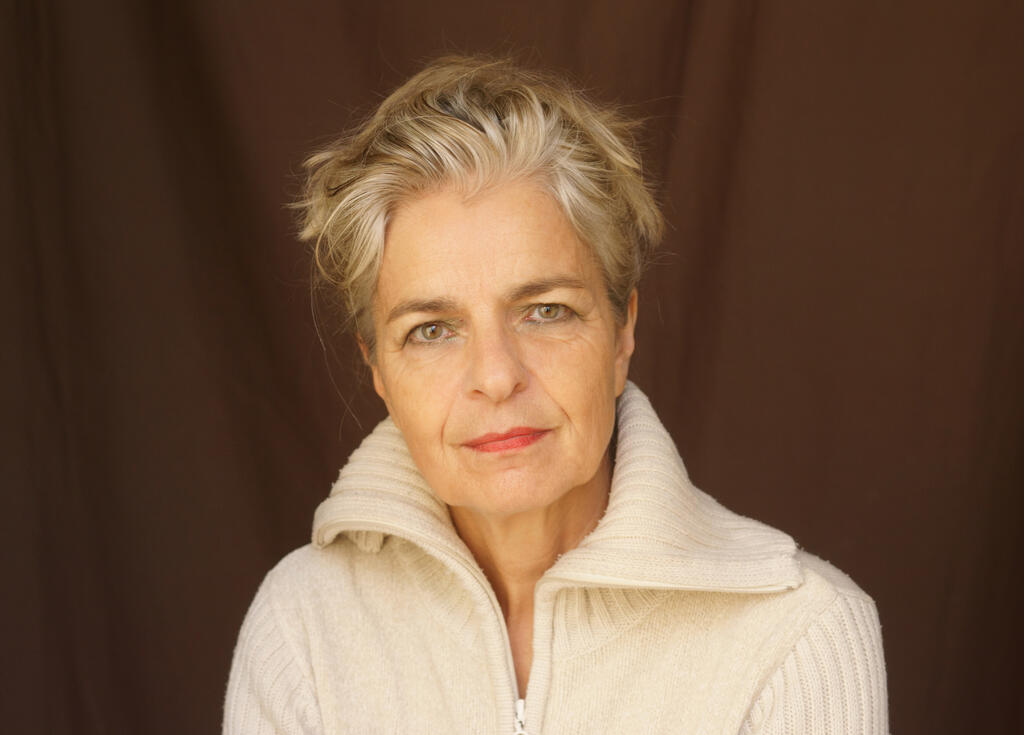 The quote points out that Europeans see themselves as the founders of equality for all people, while at the same time, as former colonial powers, they refuse to come to terms with and compensate for colonial crimes. Every step must be claimed, fought for and negotiated by the victims. The quote is located in more recent discussions about global cultures of remembrance, in which the relationship between colonialism and National Socialism in particular is being debated. In her journalistic book, Wiedemann reconstructs concrete entanglements, simultaneities and contradictions between (post-)colonialism and (post-)National Socialism.
The quote points out that Europeans see themselves as the founders of equality for all people, while at the same time, as former colonial powers, they refuse to come to terms with and compensate for colonial crimes. Every step must be claimed, fought for and negotiated by the victims. The quote is located in more recent discussions about global cultures of remembrance, in which the relationship between colonialism and National Socialism in particular is being debated. In her journalistic book, Wiedemann reconstructs concrete entanglements, simultaneities and contradictions between (post-)colonialism and (post-)National Socialism.
Further Reading:
*Charlotte Wiedemann (2022): Repairing the Damage to Our Ethical Categories. A Conversation with Charlotte Wiedemann. Interview by Ferenc Laczó, in: The Review of Democracy.
OK
“If the first woman God ever made was strong enough to turn the world upside down all alone, these women together ought to be able to turn it back, and get it right side up again!”
Correct!
“If the first woman God ever made was strong enough to turn the world upside down all alone, these women together ought to be able to turn it back, and get it right side up again!”
Year:
Author Bio:
Sojourner Truth (1797-1883), originally born into slavery, free from 1827, was an activist who campaigned for the abolition of slavery and for equality for women.
Source:
Quote: Sojourner Truth (1851): “Ain‘t I a woman?”, https://sourcebooks.fordham.edu/mod/sojtruth-woman.asp
Picture: Randall Studio – This picture was digitally processed, Wikimedia, Creative Commons.
Context:
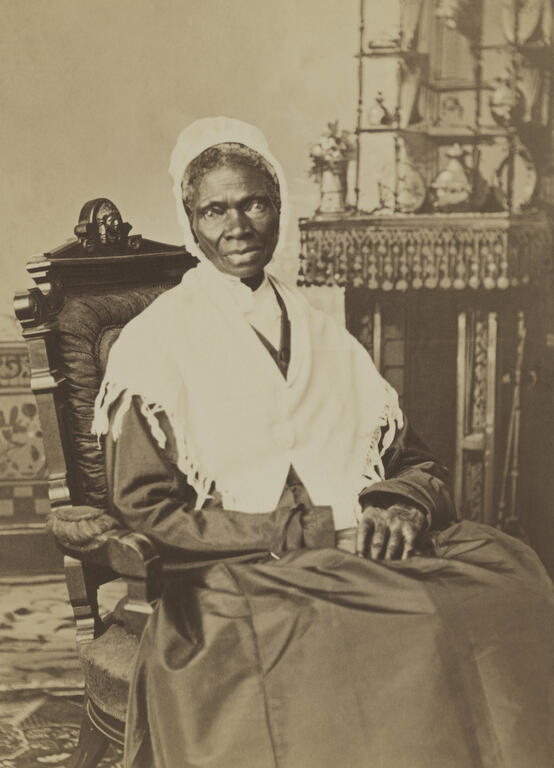 Sojourner Thruth gave the speech “Ain’t I a woman” at the women’s convention in Akron, Ohio in 1851, criticizing the unequal treatment of black and white women, to which the question “Am I not a woman?” refers. The speech is also directed against the unequal treatment of men and women and the lack of rights for women. In the quote, she refers to the Bible, in particular to the original mother Eve and her strength to turn the world upside down.
Sojourner Thruth gave the speech “Ain’t I a woman” at the women’s convention in Akron, Ohio in 1851, criticizing the unequal treatment of black and white women, to which the question “Am I not a woman?” refers. The speech is also directed against the unequal treatment of men and women and the lack of rights for women. In the quote, she refers to the Bible, in particular to the original mother Eve and her strength to turn the world upside down.
In her speech, Truth draws attention to the specific intertwining of sexism and racism in the 19th century.
Further Reading:
*bell hooks (2014): Ain’t I a Woman. Black Women and Feminism. New York: Taylor & Francis Ltd.
*Sojourner Truth [1851]: “Ain’t I a Woman?“
OK
“Woman is born free and remains equal to man in rights. Social distinctions may be based only on common utility.”
Correct!
“Woman is born free and remains equal to man in rights. Social distinctions may be based only on common utility.”
Year:
Author Bio:
Olympe de Gouges (1748-1793) was a pioneer for the emancipation of women and their civil rights. De Gouges was also an early critic of colonialism. She was executed in 1793, but not for her commitment to women’s rights.
Source:
Quote translated after: Olympe de Gouges (1791): Declaration of Women- and Citizen rights, First Article
Picture: Alexander Kucharski – Bonarov, 11. November 2018, CC BY-SA 4.0, Wikimedia. Creative Commons.
Context:
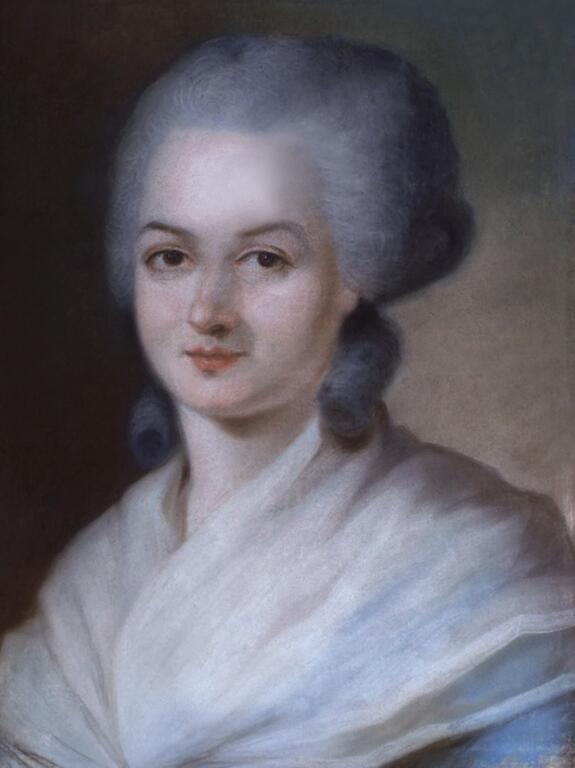 The “Declaration of the Rights of Women and of the Female Citizen” is a counter-declaration to the Declaration of Human Rights of the French Revolution, which only applied to men. De Gouge’s “Declaration of the Rights of Women and the Female Citizens” is a fundamental text in the history of women’s emancipation. However, women’s suffrage was not introduced in France until a long time later, in 1944. Switzerland was one of the last European countries to grant women full civil rights in 1971. The canton of Appenzell Innerrhoden did not introduce voting rights for women at communal level until 1990. De Gouge’s demands remain relevant. According to UN Women, the risk factor of living in poverty is still around 1.2 times higher for women than for men in the same age group.
The “Declaration of the Rights of Women and of the Female Citizen” is a counter-declaration to the Declaration of Human Rights of the French Revolution, which only applied to men. De Gouge’s “Declaration of the Rights of Women and the Female Citizens” is a fundamental text in the history of women’s emancipation. However, women’s suffrage was not introduced in France until a long time later, in 1944. Switzerland was one of the last European countries to grant women full civil rights in 1971. The canton of Appenzell Innerrhoden did not introduce voting rights for women at communal level until 1990. De Gouge’s demands remain relevant. According to UN Women, the risk factor of living in poverty is still around 1.2 times higher for women than for men in the same age group.
Further Reading:
*Resources on Olympe de Gouges
*Sophie Mousset (2007): Women’s Rights and the French Revolution. A Biography of Olympe De Gouges. New York: Routledge.
OK
“Those who burn books will in the end burn people.”
Correct!
“Those who burn books will in the end burn people.”
Year:
Author Bio:
Heinrich Heine (1797-1856) was a critical, political publicist of Jewish origin. He was banned from publishing in Prussia in 1833 and 1835, which is why he moved to Paris. He was treated with hostility throughout his life for his Jewish origins and his political stance.
Source:
Quote translated after: Heinrich Heine (1823): Almansor. Eine Tragödie, DHA, Vol. 5, p. 3.
Picture: By Moritz Daniel Oppenheim. Wikimedia. Creative Commons.
Context:
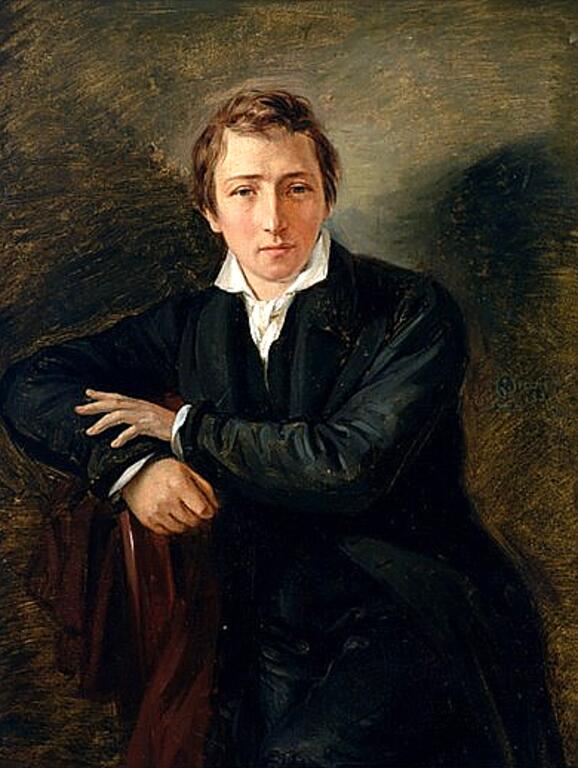 The quote comes from Heine’s tragedy “Almansor”. In the present day, it is often referred to the book burnings of 1933. The chronologically closer context is the Wartburg Festival in 1817, where around 500 students gathered. Inspired by the French Revolution and the declaration of human and civil rights in 1789, these were also demanded here. The Wartburg Festival is regarded as an important event of early political liberalism and the German national movement. In contrast to these liberal aspirations, books by unpopular authors were symbolically burned at the festival. These included the book “Die Germanomanie” by the Jewish publicist Saul Ascher (1767-1822), which was critical of nationalism. Heine and others criticized the Wartburg Festival for the reactionary and anti-Semitic views spread there.
The quote comes from Heine’s tragedy “Almansor”. In the present day, it is often referred to the book burnings of 1933. The chronologically closer context is the Wartburg Festival in 1817, where around 500 students gathered. Inspired by the French Revolution and the declaration of human and civil rights in 1789, these were also demanded here. The Wartburg Festival is regarded as an important event of early political liberalism and the German national movement. In contrast to these liberal aspirations, books by unpopular authors were symbolically burned at the festival. These included the book “Die Germanomanie” by the Jewish publicist Saul Ascher (1767-1822), which was critical of nationalism. Heine and others criticized the Wartburg Festival for the reactionary and anti-Semitic views spread there.
Further Reading:
*Shlomo Avineri (2017): Where They Have Burned Books, They Will End Up Burning People.
*Willi Goetschel (2019): Heine and Critical Theory. London: Bloomsbury Publishing.
OK
“If the state is criminal because it violates human rights and freedoms […], then participation is criminal.”
Correct!
“If the state is criminal because it violates human rights and freedoms […], then participation is criminal.”
Year:
Author Bio:
Fritz Bauer (1903-1968) was a German lawyer. As Attorney General, he brought the crimes committed in the Auschwitz extermination camp to justice. He stands for the tireless fight for the investigation and legal prosecution of Nazi crimes.
Source:
Quote translated after: Fritz Bauer (1964): „Warum Auschwitz-Prozesse?“, in: Neutralität. Kritische Schweizer Zeitschrift für Kultur und Politik, Jg. 2 (6/7), p. 9.
Picture: Fritz Bauer Institut / A. Mergen. Wikimedia, Creative Commons.
Context:
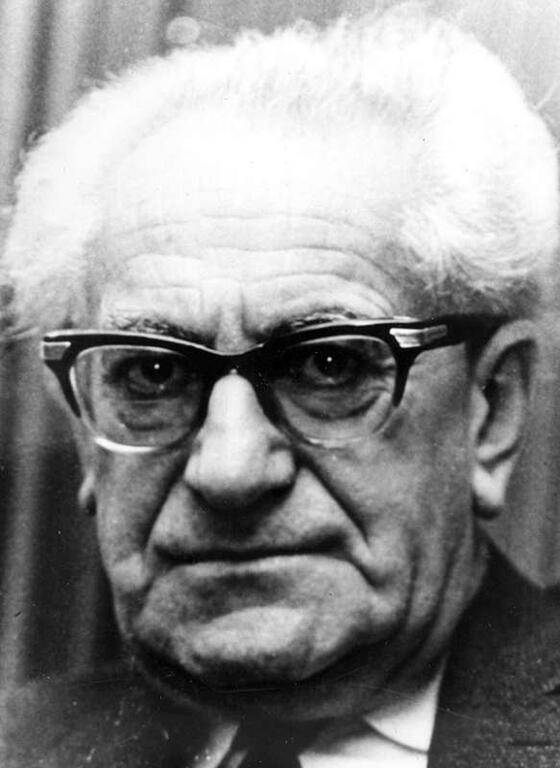 Fritz Bauer comments on the German controversy over the reason for and purpose of the Frankfurt Auschwitz trials (1963-1965). In this controversy, it is argued, among other things, that the crimes are now time-barred. Fritz Bauer, on the other hand, still considers the legal prosecution of Nazi injustice to be necessary in order to show the historical truth about the crimes, accomplices and confidants. He argues that the lessons that needed to be learned were still relevant. For him, this includes social recognition and legal protection of the right to resist legal injustice. In this context, he also speaks of a “virtue of disobedience” in the face of laws and orders that violate human dignity.
Fritz Bauer comments on the German controversy over the reason for and purpose of the Frankfurt Auschwitz trials (1963-1965). In this controversy, it is argued, among other things, that the crimes are now time-barred. Fritz Bauer, on the other hand, still considers the legal prosecution of Nazi injustice to be necessary in order to show the historical truth about the crimes, accomplices and confidants. He argues that the lessons that needed to be learned were still relevant. For him, this includes social recognition and legal protection of the right to resist legal injustice. In this context, he also speaks of a “virtue of disobedience” in the face of laws and orders that violate human dignity.
Further Reading:
*Ronen Steinke (2022): Fritz Bauer: The Jewish Prosecutor Who Brought Eichmann and Auschwitz to Trial. Indiana: Indiana University Press.
*Suparna Banerjee (09.02.2023): The man behind the Auschwitz trials.
OK
1500
to 1600
to 1700
to 1800
to 1850
to 1900
to 1925
to 1950
to 1975
to 1990
to 2000
to 2010
2011